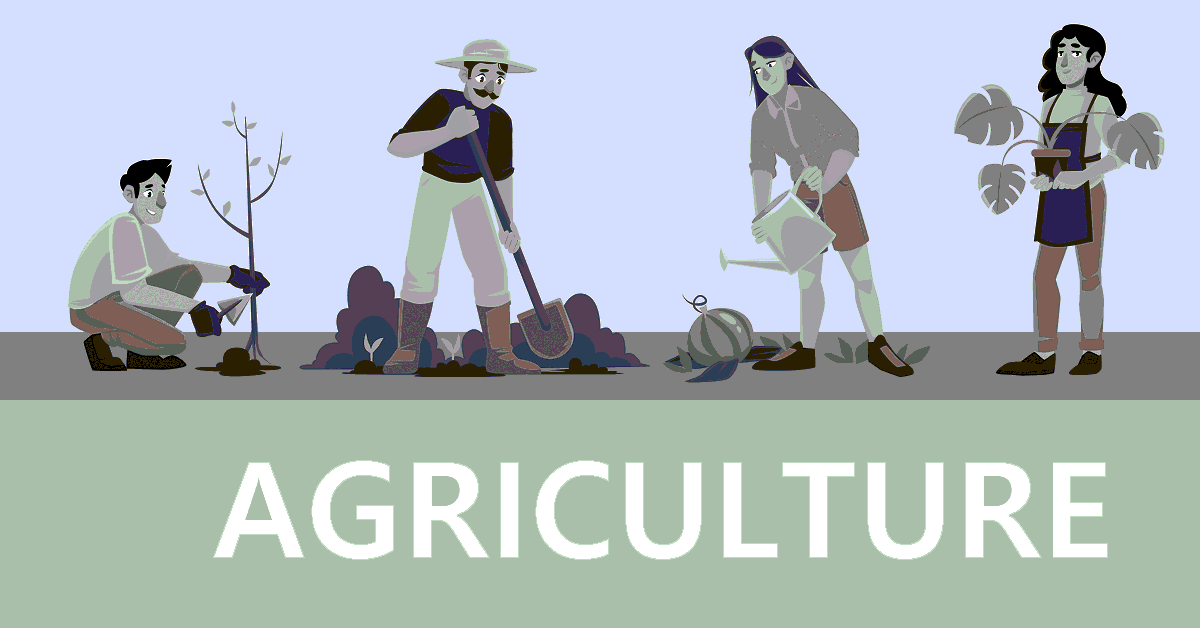
Agriculture is one of the most important industries in the world, providing food, fiber, and fuel to billions of people. As the world's population continues to grow, the demand for food is also increasing. To meet this growing demand, the agricultural industry must continually evolve and improve. One of the latest developments in this field is genetic modification (GM), which has the potential to revolutionize the way we grow crops and raise animals.
In this article, we will explore the effects of genetic modification in agriculture and what this means for the food supply. We will examine the benefits and risks of GM crops, and look at the latest research and findings in this field. Our goal is to educate and inform the target audience about the impact of genetic modification in agriculture, and to encourage them to form their own informed opinions.
Benefits of GM Crops
One of the main benefits of GM crops is increased crop yields. According to a study by the National Academy of Sciences, GM crops have increased crop yields and reduced pesticide use. This is because GM crops are often designed to be resistant to pests and diseases, which means that farmers can use fewer pesticides and still achieve high crop yields. In addition, GM crops can be designed to be more resistant to environmental stressors such as drought and extreme temperatures, which can help to increase crop yields in challenging conditions.
Another benefit of GM crops is their global reach. A 2020 report by the International Service for the Acquisition of Agri-biotech Applications showed that GM crops are grown by 18 million farmers in 26 countries. This has allowed farmers in many parts of the world to achieve higher crop yields and improve their livelihoods. For example, in 2018, a GM cotton crop in India showed a 15% increase in yield compared to conventional cotton crops.
Risks of GM Crops
While GM crops have many potential benefits, there are also risks associated with this technology. Critics of GM crops argue that they can lead to increased herbicide use and the development of herbicide-resistant weeds. This is because GM crops are often designed to be resistant to certain herbicides, which means that farmers can use more herbicides without damaging the crops. However, over time, weeds can develop a resistance to these herbicides, making them more difficult to control.
Another concern about GM crops is their potential impact on the environment. For example, there is some evidence that GM crops can cross-pollinate with wild relatives, leading to the spread of GM traits into wild populations. This could have unintended consequences for wildlife and ecosystems, and could also lead to the development of superweeds that are resistant to multiple herbicides.
Impact of GM Crops on the Environment
Despite these risks, many experts believe that GM crops can have positive impacts on the environment. For example, the Royal Society of London stated that GM crops can have positive impacts on the environment, such as reducing greenhouse gas emissions. This is because GM crops can be designed to be more efficient in their use of resources, such as water and fertilizer. By reducing the amount of resources required to grow crops, GM crops can help to reduce the environmental impact of agriculture.
In addition, GM crops can help to reduce the amount of land required for agriculture. This is because GM crops are often designed to be more productive, which means that farmers can produce more food on less land. This can help to preserve natural habitats and reduce the loss of biodiversity, which is a critical issue in many parts of the world.
Conclusion
In conclusion, genetic modification in agriculture has the potential to greatly benefit our food supply and environment. GM crops have shown to increase crop yields, reduce pesticide use, and even lower greenhouse gas emissions. However, it is important to also consider the potential risks and ethical considerations associated with GM crops, such as the development of herbicide-resistant weeds and the potential impact on biodiversity.
It is crucial that we approach genetic modification in agriculture with caution and a comprehensive understanding of its effects. This includes continued research and monitoring of GM crops to ensure their safety and effectiveness. Only by considering all the facts and perspectives can we make informed decisions about the role of genetic modification in agriculture and the future of our food supply.
In the end, it is up to each individual to form their own informed opinion on the subject, taking into account the latest research, benefits, and risks. Regardless of one's stance on GM crops, it is clear that genetic modification has the potential to greatly impact the future of agriculture and food supply, and as such, requires careful consideration and ongoing attention.
Agricultural Science




